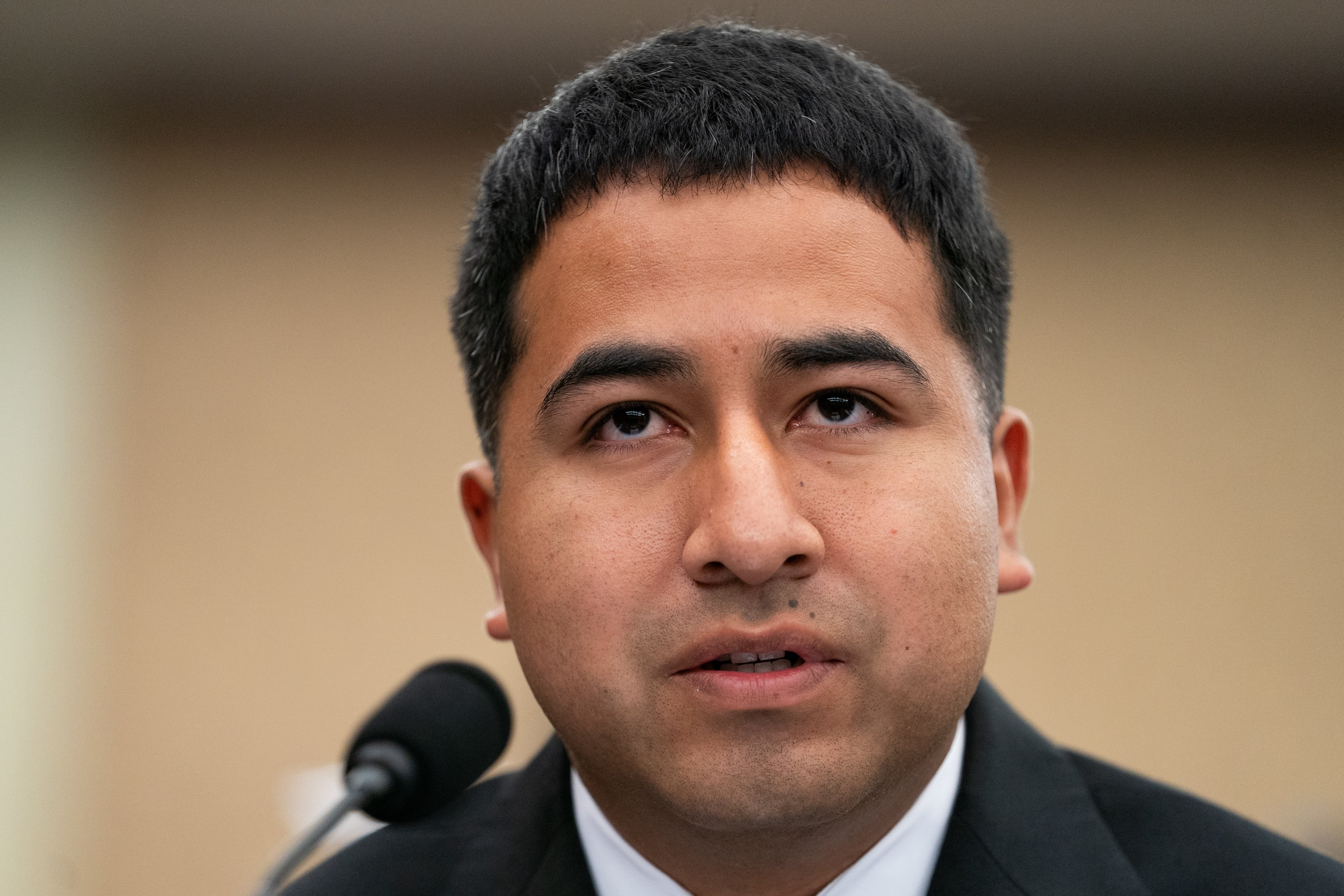Military families have some decisions to make about their health care before Tricare open season ends Dec. 9.
Tricare officials released information about increases in health plan costs for 2026, so families can compare their options with Tricare Prime and Tricare Select. There’s also a new health care choice for families living in the metro areas of Atlanta, Georgia, and Tampa, Florida.
Tricare open season applies to those enrolled in or eligible for Tricare Prime or Tricare Select. During this period, enrolled beneficiaries can make changes to their health coverage — such as switching from Tricare Prime to Tricare Select, or moving from individual to family enrollment. Depending on the plan, costs may include enrollment fees, premiums, cost-shares and co-payments.
Generally, those who have been paying out-of-pocket for health care under Tricare in 2025 will pay extra in 2026, according to the 2026 fee schedules.
Some Tricare beneficiaries are also eligible for the Federal Employees Dental and Vision Insurance Program, or FEDVIP. That program’s open season ends Dec. 8. Note that’s a day earlier than the end of Tricare open season.
It’s also the time to enroll in the dependent care flexible spending program and the health care flexible spending program now offered to active-duty service members.
Any changes made during open season take effect Jan. 1.
Open season doesn’t apply to individual active-duty service members, or to Tricare for Life, or to the premium-based plans of Tricare Reserve Select, Tricare Retired Reserve and Tricare Young Adult. These premium-based plans can be purchased at any time during the year, but those in Tricare Young Adult with either the Prime or Select options can only change plans during open enrollment or a qualifying life event.
If eligible beneficiaries don’t enroll during open season, they must wait until a qualifying life event, such as the birth or adoption of a child, marriage, divorce, moving or changes to other health insurance, to enroll.
Those who are satisfied with their current plan don’t need to take action.
RELATED

But others, including 150,000 Tricare beneficiaries living in metro areas of Atlanta and Tampa have additional options to consider. They’re eligible to enroll in a health care demonstration project, which is a Tricare Prime option. Defense Health Agency officials awarded the contracts for the project to CareSource Military and Veterans, a nonprofit managed care organization. CareSource will run the project in the two areas, worth a combined total of $110 million, for three years.
Those eligible who want to participate must actively take the steps to enroll.
A key benefit for those enrolled in Tricare Prime through this demonstration project is that they won’t be required to get referrals for in-network specialty care, as is normally required in Tricare Prime.
The plans
Tricare Prime is a health maintenance organization-style plan in which beneficiaries get most of their care from a primary care manager, with referrals required for specialty care. There is no deductible. Active-duty service members, their family members and transitional survivors don’t pay enrollment fees or out-of-pocket costs for covered services, unless they get nonemergency care without a referral, use nonnetwork providers without authorization or use a pharmacy other than a military pharmacy. Retirees, their families and all others pay enrollment fees and out-of-pocket costs for covered services except for preventive care.
Tricare Select is a preferred provider organization-style plan in which beneficiaries choose their Tricare-authorized provider and don’t have to get referrals for most services. There are deductibles, co-payments and cost-shares.
By law, there are differences in some costs based on when the sponsor entered the military. Those who entered before Jan. 1, 2018, are part of Group A, while those who entered on or after Jan. 1, 2018, are part of Group B.
Some increased costs
There are no co-payments for any group for covered preventive care visits.
For covered services such as primary care visits and specialty care outpatient visits, some co-pays will go up by $1 to $3 a visit as of Jan. 1.
An exception is the co-payment for emergency room visits for Tricare Select beneficiaries in Group A, for both active-duty families and retired members and their families, where the cost has gone down by $2 per in-network visit. For example, retirees and their families in that group will now pay $138; active-duty families in that group will now pay $103.
Another benefit for retirees, their family members and survivors who enroll in the Atlanta and Tampa demonstration projects is that Tricare Prime enrollment fees are waived for the first year of the demo.
For those eligible to enroll in Tricare Prime through the demonstration project, that’s a savings of $381.96 per individual and $765 per family, for example, for retirees, family members and others in Group A.
The 2026 Tricare Prime Group A enrollment fee increases are $9.96 for individuals and $21 for families, compared to 2025 enrollment fees.
RELATED

Pharmacy
Pharmacy costs are increasing in 2026 for those who fill their prescriptions outside a military health facility, reflecting a 12% to 15.8% rise over the current co-pays, which were set at the start of 2024.
Most beneficiaries will pay $1 to $9 more for covered drugs they get through the Tricare Pharmacy Home Delivery and at Tricare retail network pharmacies, according to the Defense Health Agency. These costs will be in effect through Dec. 31, 2027.
Active-duty service members pay nothing for covered drugs from military pharmacies, home delivery or retail network pharmacies. Co-payments won’t change in 2026 for survivors of active-duty service members and medically retired service members and their family members.
Premium-based plans
Costs for the monthly premium for Tricare Young Adult Prime health plan are rising by 9% in 2026, from $727 a month to $794. The monthly premium for Tricare Young Adult Select are increasing by 8%, from $337 to $363 a month.
Tricare Young Adult plans are available to qualified former dependent children up to age 26. The premiums are set by the Defense Health Agency, and the program must be at no cost to the government, under rules set by Congress when the program was implemented in 2013. Defense officials look at the health care expenditures for the program for the previous year and calculate the costs for premiums.
Monthly premiums for Tricare Reserve Select and Tricare Retired Reserve are also increasing. For service members in Tricare Reserve Select, the premiums are rising by 8%, to $57.88 a month for the member only, and by 4%, to $286.66 for member and family premiums.
Those in Tricare Retired Reserve will pay an extra 2%, to $645.90 a month for the member only in January, and an extra 2%, to $1,548.30, for member and family premiums.
How to enroll or make changes
Visit Tricare.mil/openseason to find information about making changes online, by phone or by mailing an enrollment form to their regional contractor. Beneficiaries can also visit milConnect.
Those who want to enroll in the demonstration project through CareSource in the Tampa or Atlanta areas can find information on those websites. They can also call customer service representatives at CareSource who will guide them through the process. That number is 833-230-2080.
While Tricare Select beneficiaries don’t need referrals currently, they can elect to switch to the Tricare Prime option with the demo, where referrals aren’t required.
Dental
Families of active-duty, National Guard and Reserve service members — as well as Guardsmen and reservists who aren’t on active duty — are eligible for the Tricare Dental Program. That program requires a separate enrollment. The premiums will stay the same through Feb. 28, 2026.
Most retirees and their family members are eligible for dental coverage under the Federal Employees Dental and Vision Insurance Program, or FEDVIP, which is administered by the Office of Personnel Management and also requires separate enrollment.
Visit www.benefeds.gov to compare choices of dental plans available by ZIP code, and to enroll or make changes to an existing plan. FEDVIP open season ends Dec.8.
Vision
Active-duty family members, retirees and their eligible family members and Selected Reserve members and their families are eligible for FEDVIP vision coverage. They must be enrolled in a Tricare health plan to be eligible.
Visit www.benefeds.gov to compare choices of vision plans available by ZIP code, and to enroll or make changes to an existing plan. FEDVIP open season ends Dec. 8.
RELATED

Flexible spending accounts
Now is also the time for setting up flexible spending accounts, which can be used to defray the costs of health care as well as dependent care.
Troops set aside pre-tax money to reduce the amount of taxable income. This is the third year service members can sign up for flexible spending accounts for dependent care; they began offering the health care FSA in March 2025.
These accounts are sponsored by the Office of Personnel Management through the Federal Flexible Spending Account Program. The open season sign-up for these accounts ends at midnight Eastern Standard Time, Dec. 8.
The Dependent Care Flexible Spending Account allows families to set aside any amount between $100 and $7,500 per household before taxes for dependent care expenses in 2026, including child care and other types of dependent care.
The Health Care Flexible Spending Account allows families to set aside any amount between $100 and $3,400 in 2026. More than 300 health care expenses are eligible for reimbursement through the FSA, including: co-pays and deductibles; out-of-pocket costs for braces; glasses and contact lenses; prescription drugs; over-the-counter medicines; bandages; and wellness treatments such as acupuncture, massage and chiropractic care. Other expenses, such as condoms, over-the-counter pregnancy tests and menstrual care products, are also eligible.
For more information and to set up the accounts for 2026, visit www.fsafeds.gov.
For help in determining whether to set up an account, and how much money to set aside, officials advise troops to take advantage of the Defense Department’s free counseling and advice from personal financial management counselors at many military installations, and tax counselors available all year through DoD’s Military OneSource. FSAFEDS also offers free benefits counseling.
Karen has covered military families, quality of life and consumer issues for Military Times for more than 30 years, and is co-author of a chapter on media coverage of military families in the book "A Battle Plan for Supporting Military Families." She previously worked for newspapers in Guam, Norfolk, Jacksonville, Fla., and Athens, Ga.




